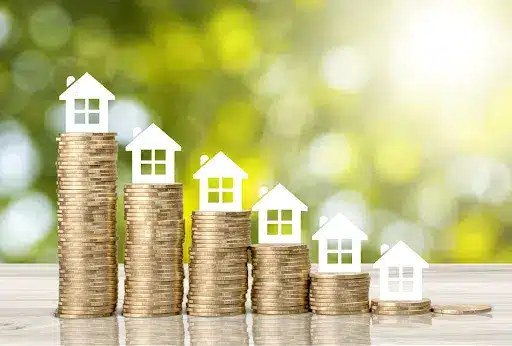Better Understanding on Real Estate Depreciation: Key Concepts for Property Investors and Homeowners
Property Details
Real estate is often considered a stable and lucrative investment. However, like any asset, it’s subject to wear and tear over time. This natural process is known as depreciation, and understanding it is crucial for property investors and homeowners alike. In this article, we’ll explain real estate depreciation, why it matters, and how you can benefit from it.
What Is Real Estate Depreciation?
Real estate depreciation refers to the gradual decrease in the value of a property over time. This reduction in value occurs due to wear and tear, deterioration, or obsolescence. It’s a natural part of owning any physical asset, much like how a car’s value decreases as it gets older and accumulates mileage.
Types of Real Estate Depreciation
Let’s explore the various types of real estate depreciation, each playing a distinct role in property value decline.
1. Physical Depreciation:
This type of depreciation results from the wear and tear property experiences over the years. Examples include a leaking roof, aging plumbing, or a cracked foundation. These physical issues can lower the property’s overall value.
2. Functional Obsolescence:
Functional obsolescence occurs when a property’s design or layout becomes outdated or less functional for modern living. An example could be a house with an impractical floor plan or limited storage space.
3. External Obsolescence:
External depreciation, often termed economic obsolescence, results from influences beyond the property. These factors encompass alterations in the local area, such as rising crime rates or a reduction in nearby conveniences like schools or shopping centers.
Importance for Property Investors
Understanding depreciation is vital for property investors for several reasons:
Tax Benefits
Investors can reduce their taxable income by deducting a portion of the property’s value through depreciation. This can result in significant tax savings.
Accurate Valuation
Investors need to factor in depreciation when determining the value of their properties. Ignoring it can lead to overestimating the property’s worth.
Maintenance Planning
Recognizing physical depreciation helps investors plan for necessary repairs and maintenance, preserving the property’s value.
Calculating Real Estate Depreciation
You’ll typically use the Modified Accelerated Cost Recovery System (MACRS) to calculate real estate depreciation for tax purposes. This method allows you to deduct a portion of your property’s cost each year over a specific period, usually 27.5 years for residential properties and 39 years for commercial properties.
Here’s a simplified example:
Let’s say you purchased a residential property for $300,000. Using the MACRS method, you can deduct approximately $10,909 ($300,000 / 27.5) yearly taxable income as depreciation.
Relevance for Homeowners
Homeowners can also benefit from understanding real estate depreciation:
1. Maintenance:
Regular upkeep can help prevent physical depreciation, ensuring the home retains its value.
2. Renovation Decisions:
Knowing about functional obsolescence can guide homeowners in making smart renovation choices to enhance their property’s appeal.
3. Property Value:
Being aware of external obsolescence in the neighborhood can impact a homeowner’s decision to buy or sell a property.
Strategies to Counter Depreciation
To counter the effects of depreciation, consider these strategies:
1. Regular Maintenance:
Perform routine maintenance and repairs to address physical depreciation.
2. Smart Renovations:
When renovating, focus on areas that will add value and functionality to your property.
3. Market Research:
Stay informed about neighborhood developments to mitigate external obsolescence risks.
Conclusion
Real estate depreciation is an essential concept for property investors and homeowners alike. Understanding its types and implications can lead to better financial decisions and the preservation of property value. Whether you’re investing in real estate or simply maintaining your home, depreciation is a factor that should not be overlooked. For more valuable insights and resources on property investment, visit Property List Hub today.





